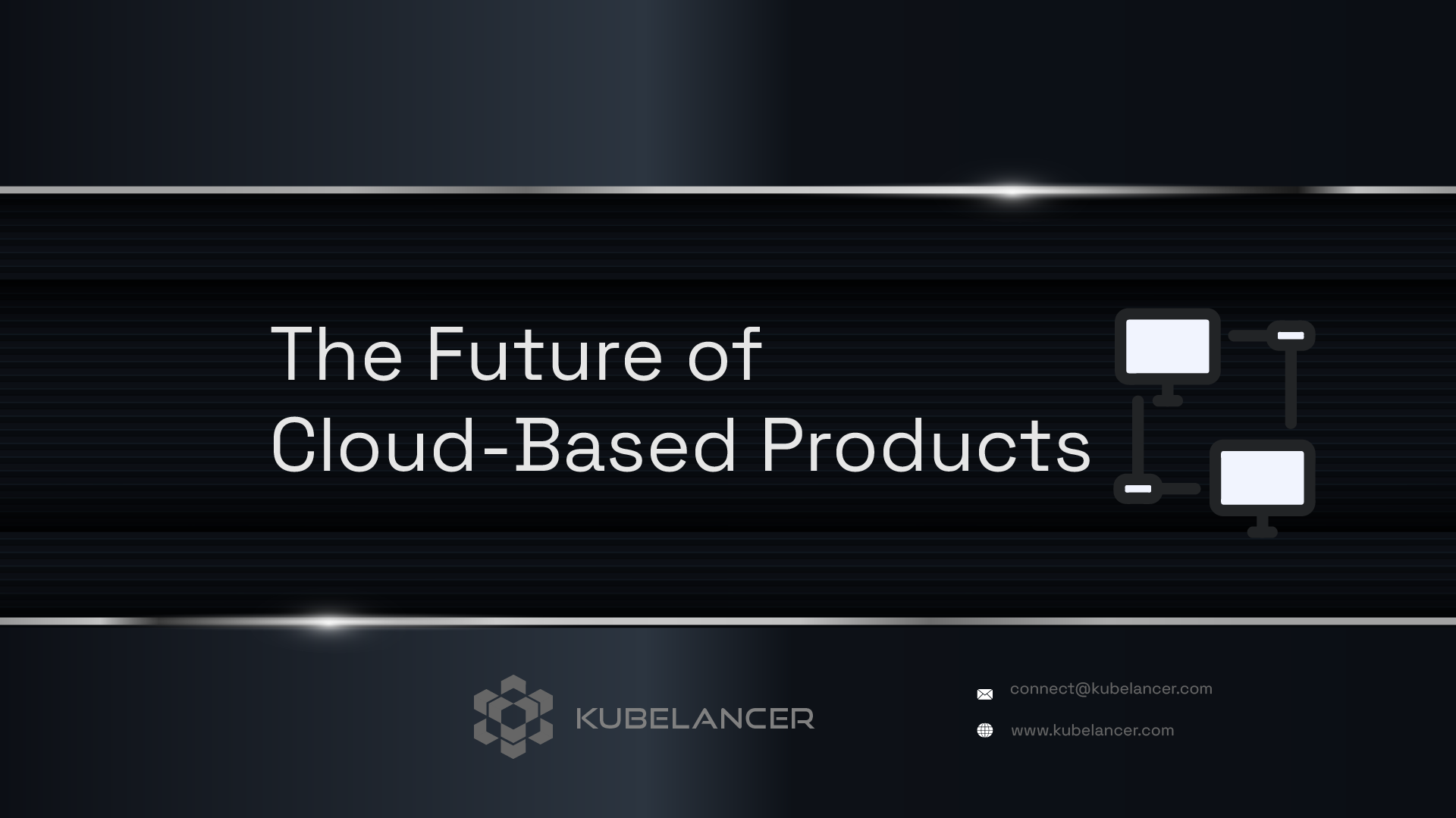Cloud technology has transformed how businesses operate, offering unparalleled flexibility, scalability, and cost-efficiency.

Cloud technology has transformed how businesses operate, offering unparalleled flexibility, scalability, and cost-efficiency. As we move into the next decade, cloud-based products will continue to innovate, allowing organizations to streamline operations, improve security, and deliver personalized experiences to customers. Here’s a look at the exciting future of cloud-based products and the trends shaping this landscape.
Artificial intelligence (AI) will be at the heart of future cloud products, bringing advanced data processing, predictive analytics, and intelligent automation capabilities. With the integration of AI-as-a-Service (AIaaS), businesses of all sizes can access pre-trained models and develop custom AI solutions without extensive infrastructure.
- Predictive Analytics: AI-driven cloud platforms will offer real-time insights into customer behavior, operational efficiencies, and market trends, enabling better decision-making.
- Enhanced Personalization: AI will allow businesses to create highly personalized user experiences, driving customer engagement and satisfaction.
- Automation: Intelligent automation will handle repetitive tasks, allowing human resources to focus on complex, value-driven activities.
As AI continues to mature, we can expect it to become embedded within cloud-based products across industries, making advanced analytics and automation more accessible and integral to daily operations.
The growth of the Internet of Things (IoT) will fuel demand for edge computing, where data processing occurs closer to the data source rather than a centralized cloud. This trend reduces latency and allows real-time data processing, crucial for applications such as autonomous vehicles, industrial automation, and remote healthcare.
- Real-Time Data Processing: With cloud services supporting edge computing, businesses will have the ability to make instant, data-driven decisions.
- IoT-Cloud Synergy: Cloud platforms will facilitate seamless integration of IoT devices, creating interconnected ecosystems for industries such as healthcare, manufacturing, and smart cities.
- Enhanced Security: Edge computing will allow sensitive data to be processed locally, reducing exposure to potential cloud-based security threats.
Edge computing, combined with cloud services, will provide businesses with the ability to harness IoT data efficiently, bringing smarter solutions closer to the point of action.
Serverless computing is revolutionizing cloud-based product development by allowing developers to focus solely on code without worrying about infrastructure management. Meanwhile, microservices architecture, where applications are broken down into small, independent services, offers flexibility, scalability, and faster deployment.
- Scalability on Demand: Serverless architecture will allow cloud products to scale instantly in response to demand, optimizing resource use and cost.
- Agility in Development: Microservices architecture will facilitate quicker deployment cycles and improved fault isolation, enhancing resilience and time-to-market.
- Cost Efficiency: With serverless models, businesses will only pay for the resources they consume, reducing overhead and maximizing budget efficiency.
Serverless architecture and microservices will drive the next wave of agile, scalable cloud-based products, providing a foundation for innovative applications and services.
With more data and workloads moving to the cloud, security and privacy will remain at the forefront of cloud technology evolution. As regulatory demands increase, cloud providers will integrate advanced security features to ensure compliance and data protection.
- Zero-Trust Security Models: In the future, cloud providers will adopt zero-trust architectures, ensuring every access request is authenticated and authorized.
- Integrated Compliance Tools: Cloud-based products will come equipped with automated compliance checks, simplifying adherence to regulations like GDPR, HIPAA, and CCPA.
- Data Encryption and Privacy Tools: Encryption at all levels—data in transit, data at rest, and data in use—will become standard, with businesses gaining more control over data access.
Enhanced security and privacy features will allow organizations to handle sensitive data confidently, supporting growth in sectors like finance, healthcare, and government.
As businesses seek to reduce their carbon footprint, cloud providers will emphasize sustainability by improving the energy efficiency of their data centers and promoting green cloud services.
- Carbon-Neutral Cloud: Leading providers are already committing to carbon neutrality, and more will follow, focusing on renewable energy and energy-efficient data centers.
- Eco-Friendly Cloud Products: Sustainability-focused cloud products will help companies measure and reduce their own environmental impact, providing analytics and insights into energy consumption.
- Shared Responsibility Models: Cloud providers will work collaboratively with customers to optimize resource usage, encouraging best practices in energy efficiency and waste reduction.
Sustainable cloud initiatives will not only reduce environmental impact but also help organizations meet their sustainability goals, aligning cloud services with corporate social responsibility.
Quantum computing has the potential to solve complex problems faster than classical computers. Although in its nascent stage, cloud-based quantum computing will become a reality as tech giants make significant advancements.
- Cloud-Based Quantum Access: Companies like IBM and Google are already offering early quantum computing services in the cloud, enabling businesses to explore quantum solutions without owning quantum hardware.
- Breakthroughs in Research and Development: Quantum computing could transform fields like drug discovery, financial modeling, and logistics optimization, allowing businesses to solve problems that are currently infeasible.
- Increased Accessibility: As the technology matures, quantum computing will become more accessible, allowing companies of all sizes to harness its power for specific, high-complexity tasks.
Cloud-based quantum computing promises a future where organizations can leverage cutting-edge technology for competitive advantage in research and innovation.
Businesses that stay ahead of these trends will be better positioned to harness the power of the cloud, enabling them to be more agile, secure, and innovative. As these technologies mature, the cloud will become an even more integral part of business operations, transforming industries and reshaping the digital landscape for the better.
.jpg)